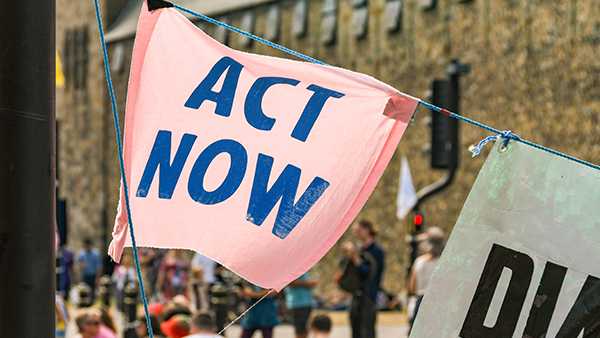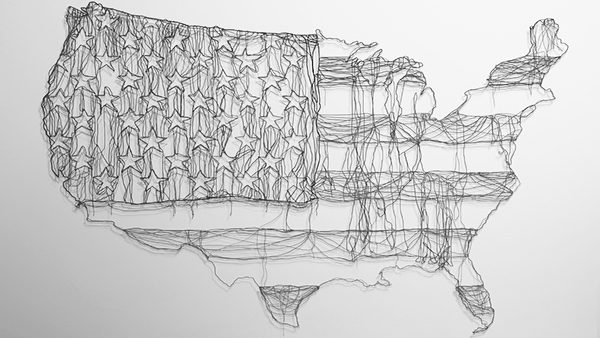A hung Parliament is the perfect outcome for the people. It’s a mystery why the British have such an aversion to messy outcomes. They force parties to listen. And that is what the leaderships of both parties will now have to do.
For Theresa May, if she is not fatally wounded (which she may be), the notion she can continue on the course she set out in the election doesn’t make any sense at all. Hard Brexit and hard austerity have been rejected. She clearly, despite the rhetoric, has not convinced the ‘just about managing’ that she is authentically on their side.
Her personal support will drop like a stone unless she addresses these issues with a sense of urgency. A change of course is essential. Even if she does change course, she may still not be able to convince her backbenchers that a softer Brexit, including membership of the single market, may be necessary. If she fails to persuade and bridge the divide between remainers and leavers then her leadership will come to a hasty end. A more open and plural style is essential – including with other parties beyond the DUP and her own. She will have to eat a hefty helping of humble pie in Brussels.
I wouldn’t put her chances of making it to the end of the year at above evens such is the degree of necessary change. But change and she might just manage it.
Jeremy Corbyn is in a much stronger position within the Labour Party and can remain leader for some time should he choose. By achieving 40% he has removed a key Blairite tenet that majorities can only be won from the perceived centreground. He didn’t win but it wouldn’t take much of a fall in the artificially high Conservative vote, with some temporary travellers from UKIP, for him to do so. Denying Theresa May a majority at the moment of seeming peak strength as she went into the election is a phenomenal achievement.
However, in some respects, the challenge for Corbyn is as great as Theresa May’s though from a position of greater strength. He too has to reach out both within his party and to other parties of a progressive disposition. His leadership will also need to be open and generous. He needs stronger players in his leading team than the left faction alone has at its disposal.
If he does reach out then he should be met with generosity by those who have had concern, with some justification, about his leadership. There will be places where there will have to be an agreement to disagree. That’s fine in a mature and diverse political culture. But Labour should not let this opportunity for change go. The stakes of the moment of Brexit, a weakening economy, and austerity fatigue are too great for Labour to blow it.
If there is acceptance of the Corbyn leadership, generosity, respect and greater unity – albeit with authentic and respectful disagreement – between all of Labour’s factions then the promise of change can be realised.
This was the ‘not quite change’ election much like 1992 in the UK context and 2004 in the US context. There is an impulse for change but people are not quite yet ready to take the leap.
Both parties have significant challenges. The people are back in charge. They weren’t willing to countenance either a large Conservative majority or a Labour Government yet. The leader that reads the people well and adapts their leadership effectively to the clear signals being sent will take us into the 2020s. If either leader fails to change their leadership style and strategy then they will fail. Welcome to clumsy democracy British style. And it may be no bad thing.
Related articles
-
The public are ready to go further and faster on net zero
Anthony Painter
The public are ahead of policy-makers and, indeed, most of the business world. COP26 is an enormous opportunity to catch up. Global leaders should take it.
-
Can progressives ever stop the in-fighting?
Matthew Taylor
Biden's victory has caused the left and moderates to fracture again.
-
Can President Biden bring America together again?
Anthony Painter
There is a long road ahead for the new president.




Join the discussion
Comments
Please login to post a comment or reply
Don't have an account? Click here to register.
Sage counsel. And a warning shot across the bows of our politicians that the political divide has moved from traditional issues of intra-generational equity to those of inter-generational equity. Corbyn gets the votes of the young, aspirational and dissatisfied, who have never in living memory had to work so hard and so joylessly for so little and with such lean prospects. And who have never before voted in such numbers.
We gilded seniors had free University, cheap and affordable houses, final salary pensions and now we are cosseted by the triple lock and capped care costs for our dotage. The entire polity is geared to debates over our welfare, our marginal tax rates, our privileges and our benefits as we hog the high ground of the economy, and elections are fought on the extent of distribution of wealth and advantage between richer and poorer members of our cohort. That's because we have always voted in large numbers and the junior generations have not. Well, last week all that changed.
Last June the response from shocked remainers was satirised as "The wrong people are using democracy!". It seems that in the intervening year the young have discovered the same power of universal suffrage and the secret ballot. The Conservatives reached a record vote share last week - enough for a landslide in previous elections - but not enough to counter a record youth turnout.
And yes, today the Union is more secure, peace in Ireland is more secure and the potential for national congruence in the face of a Brexit process with an EU that has bared its teeth is greater. All in all, healthy and hopeful. And if the focus turns to matters of equity (equity, not equality) between the generations as well as the current political issues on equity within the generations then we are preparing the nation for a new and sustainable future and the dawn of a truly inclusive demos.